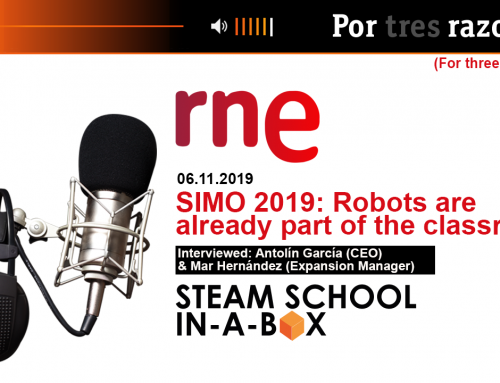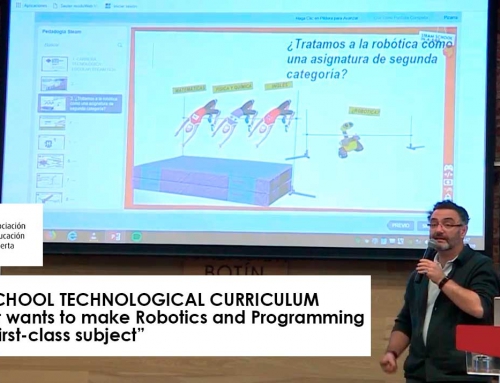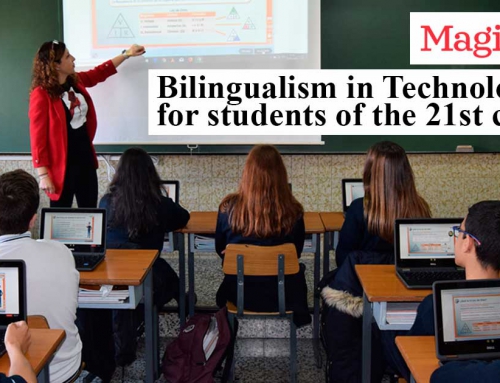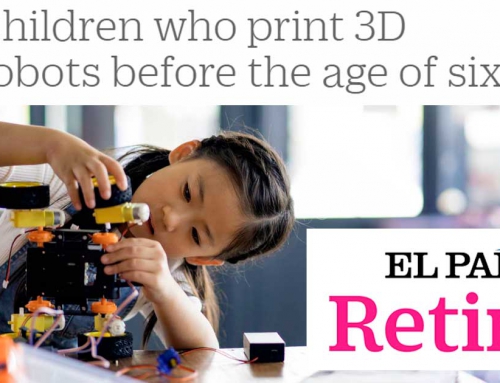On the occasion of the new anti-hacking and cybersecurity escape room camp recently organized by ConMasFuturo.com at the Advanced Polytechnic School (EPS) of the CEU San Pablo University, EL PAÍS Retina aims to teach children and teenagers the importance of concepts like Network Security or Password Protection. Camps like this could be the solution.
ConMasFuturo.com is now working on the development of an specific course about Anti-hacking and cibersecurity for school children for STEAM SCHOOL IN-A-BOX.
We review the content of the article here.
Privacy – How to take control of your digital life by playing ‘hacker’
By Montse Hidalgo Pérez | Olivia López Bueno
01/AUG/2019
The certainty that your passwords are a disaster, the chilling pile of data we give to Google, the lightness with which we pour our lives into networks … Everything fits in an ‘escape room’
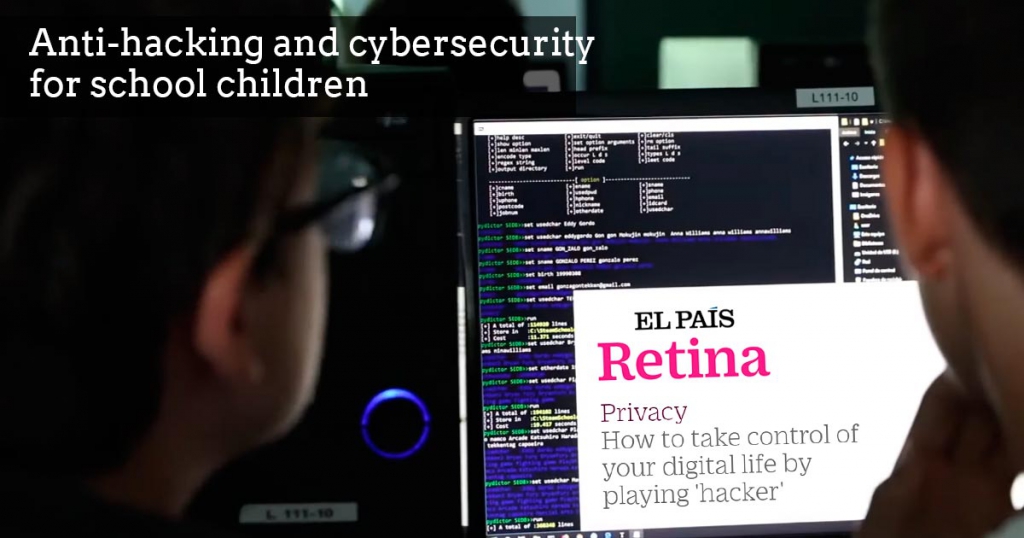
It’s almost noon. Safe from the heat wave, under the cold fire of the screens, nine teenagers look for Cosmin Pastracanu. […] Finding out all the possible information about this engineer and his partner, Corinna, depends on the kids being able to leave the bunker in which they have been imaginary trapped for four days. This is the premise of the escape room in which they are participating, organized by the technological academy Con mas futuro.
[…] The bunker does not exist, the kids are in a classroom at the Advanced Polytechnic School (EPS) of the CEU San Pablo University. The fictional escape is the excuse invented by José Antonio García Cañizares, an expert in cybersecurity and networks, to cover in an attractive way an urgent lack in the school environment. “Why would anyone think of leaving the doors of your house wide open without any control? Well, many people are what they do in the digital world. And today nobody is sure if they do not take the appropriate measures”, explain.
To fit these concepts in the adolescent mind is no small thing. “We knew that it was not worth giving them simply a list of recommendations or theoretical classes. These topics are best learned through practice,” recalls the creator of the escape room.
An Escape Room with a moral
[…] “The goal is not only to learn how a hacker works. The important thing is that they become aware of the data they are giving both in social networks and in Google itself, the overwhelming amount of data we generate, how we can manage it and be a bit aware of the danger we face and how easy it is to access much of that data and, consequently, to even be able to access our profiles from certain sites, “explains Molina, who works for Con mas futuro, as a monitor of these days.
The output of that imaginary bunker thus becomes a metaphor for the discovery of the real implications of an increasingly digital life. The kids leave that cave in which the easiest thing is to think that selling their own privacy is not bad, as long as something is received in return; and they learn that put to yield a part of it, it is better to protect it to the maximum. “We live in a world where technological changes emerge at every moment, but at the same rate the attack vectors used by cybercriminals escalate. In this situation, young people cannot be mere consumers of technology. They have to know the risks and consequences of their activity on the Internet and learn techniques that prevent and mitigate attacks if they occur, “Garcia warns.
Low quality passwords
[…] “Many times many of us put passwords that are closely related to our life: our date of birth, our name, our daughter… We learn to put strong passwords, use password managers, know how a hacker acts, how the system works to impersonate identity, so that we can protect ourselves and use social networks and the internet in general in a safe and healthy way”.
[…] “In a few years, when we have matured in knowledge and are aware of our rights in terms of cybersecurity and privacy, we will put our hands in our heads to remember what we were exposed now,” the creator of the escape room says.


